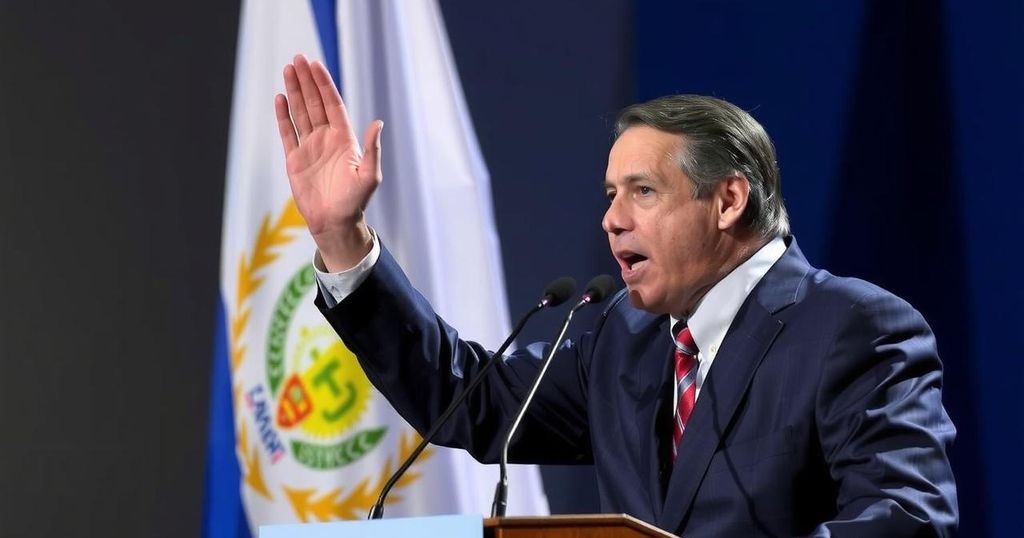Yamandú Orsi Triumphs in Uruguayan Presidential Runoff, Signaling Political Shift
In Uruguay’s presidential runoff, Álvaro Delgado conceded to left-wing candidate Yamandú Orsi, reflecting mounting public dissatisfaction with the ruling conservative coalition. Orsi emphasized unity and dialogue in his victory speech. The election, marked by nearly 90% turnout, showcases a global trend of anti-incumbent sentiment, as voters seek change amid economic challenges.
In a closely contested runoff election, Álvaro Delgado, the conservative candidate, conceded defeat to left-wing challenger Yamandú Orsi, marking a significant political shift in Uruguay. Orsi, a former history teacher and mayor affiliated with the Broad Front coalition, received approximately 49.56% of the votes compared to Delgado’s 46.17%. Fireworks celebrated Orsi’s victory as he emphasized the need for national unity despite differing political sentiments among the populace. As voter turnout approached 90%, the elections highlighted a growing discontent with the incumbent government, reflecting a broader global trend of challenging ruling parties.
Delgado acknowledged the outcome with grace, stating, “with sadness, but without guilt, we can congratulate the winner,” referring to Orsi. The transition of leadership signifies the end of the center-right coalition’s brief governance since 2019, following President Luis Lacalle Pou’s term. Orsi’s ascent is attributed to citizens’ frustrations over economic stagnation and rising crime rates, fueling a desire for change over the existing administration’s policies.
Yamandú Orsi’s campaign promises include tax incentives aimed at attracting investment, as well as social security reforms to lower retirement ages. However, his approach seeks to build upon the successful policies of the past Broad Front administration, which had previously overseen significant social advancements, including the legalization of abortion and same-sex marriage.
Endorsements from former President José Mujica underline Orsi’s policies rooted in stability and continuity. In deepening the dialogue within a polarized nation, Orsi stated, “I will be the president who calls for national dialogue again and again, who builds a more integrated society and country.” As the new administration begins, many look to Orsi to navigate the expectations of voters who seek both economic revival and social progress.
The recent presidential runoff election in Uruguay represented a pivotal moment in the nation’s political landscape. The conservative coalition, led by Álvaro Delgado, lost to leftist candidate Yamandú Orsi, indicating a shift in voter priorities amidst widespread dissatisfaction with the incumbent government. The outcome mirrors a global pattern of anti-incumbent sentiment seen during elections across various democracies, as citizens express frustration over economic challenges and social issues that have emerged, particularly in the wake of the COVID-19 pandemic.
The election results reflect a compelling desire among the Uruguayan electorate for change, as exemplified by the concession from Álvaro Delgado and the celebratory response to Yamandú Orsi’s victory. As the new president, Orsi’s commitment to fostering national unity and addressing key socioeconomic issues will be crucial for his administration’s success. His moderate approach, which seeks to combine continuity with progressive reforms, holds promise for responsibly addressing the needs and concerns of all citizens.
Original Source: www.coastreporter.net




Post Comment